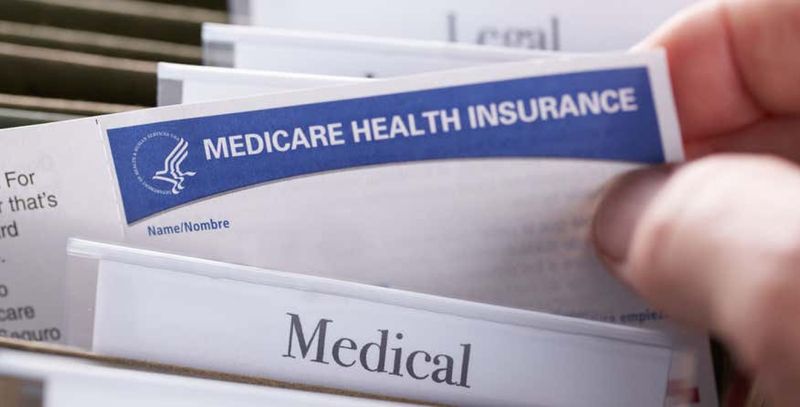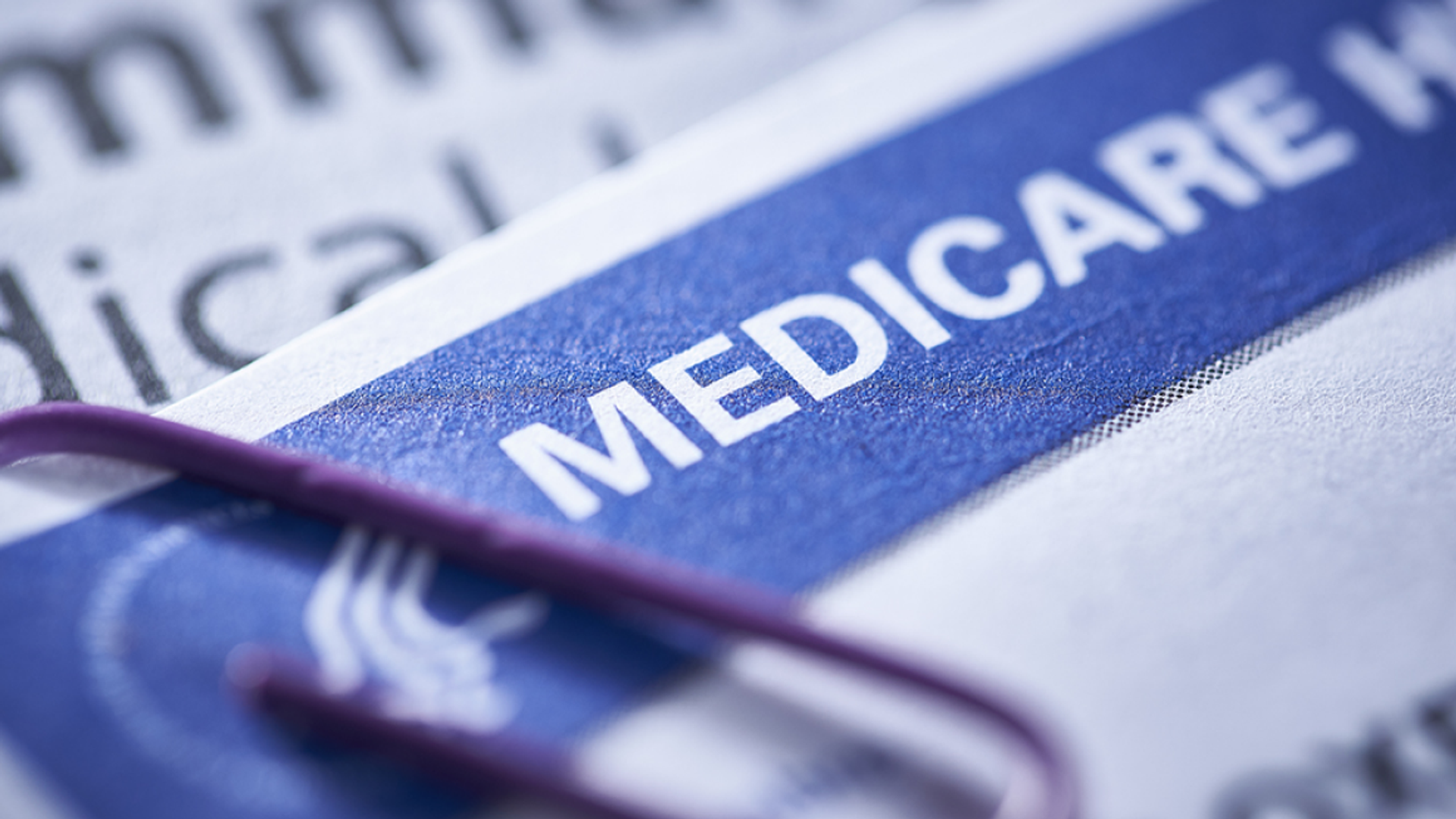In the medical field, there are few sayings that are more true than this one.
From dealing with complicated diagnoses to dealing with (even more!) complicated insurance companies, healthcare professionals need all the knowledge they can get in order to care for their patients and ensure they achieve financial stability and success.
And when it comes to Medicare, it’s not only true but vitally important for a patient’s satisfaction and every medical professional’s long-term success.
Key Takeaways
- ✓Pharmacists play a crucial role in guiding patients through Medicare’s complexities.
- ✓Understanding Medicare’s different parts (A, B, C, D) is essential for pharmacists to provide accurate billing, reimbursement, and patient care.
- ✓Staying informed about Medicare updates is vital for pharmacists to adapt to changes and continue offering the best patient support.
Index
- →Understanding the Medicare System: Who Needs It, Who Gets It, and Why?
- →Medicare Part A: Hospital Stay Coverage
- →What Impact Does Medicare Part A Have on Pharmacists?
- →Medicare Part B: Medical Insurance Coverage
- →Medicare Part C: Medicare Advantage Insurance
- →Medicare Part D: Prescription Drug Coverage
- →Introducing DocStation: The Best Tool for Your Patients and Your Profits
As pharmacists move more toward the healthcare front lines, understanding the intricacies of Medicare has become more important than ever before
Medicare is a complex system that can be challenging to understand, even for the most skilled medical clinicians.
But being equipped to tackle it will turn any obstacles into opportunities for enhanced patient care and increased revenue.
Remember: understanding Medicare is not just about compliance…it’s about making sure you are helping patients navigate a challenging system while also finding more ways to secure your financial health.

Understanding the Medicare System: Who Needs It, Who Gets It, and Why?
Medicare is a federal health insurance program in the United States primarily designed for individuals who are 65 years or older.
It’s also available for some younger people who have certain disabilities and for those with End-Stage Renal Disease (ESRD) or Amyotrophic Lateral Sclerosis (ALS)123.
Medicare is administered by the Centers for Medicare & Medicaid Services (CMS) and is a cornerstone of healthcare for millions of Americans.
The program is divided into four parts, each covering different healthcare services:
Medicare Part A (Hospital Insurance):
This part covers inpatient hospital stays, care in a skilled nursing facility, hospice care, and some home health care.
Most people don’t pay a monthly premium for Part A as they have paid into the system through payroll taxes.
Medicare Part B (Medical Insurance):
Part B covers certain doctors’ services, outpatient care, medical supplies, and preventive services.
Unlike Part A, most people pay a monthly premium for Part B.
Medicare Part C (Medicare Advantage Plan):
This is an alternative to Original Medicare offered by private insurance companies approved by Medicare.
It often includes coverage for Parts A and B and sometimes Part D, along with additional benefits.
Medicare Part D (Prescription Drug Coverage):
Part D adds prescription drug coverage to Original Medicare, some Medicare Cost Plans, some Medicare private plans, and Medicare Medical Savings Account Plans. Most people will pay some level of a monthly premium for Medicare Part D coverage.
With a strong knowledge of the various parts of Medicare, pharmacists can not only better serve their patients, but also optimize their pharmacy’s operations and improve their financial performance.
Pharmacists play an ever-increasing role in enhancing patient care and their medication management.
And with that role should and can come optimal reimbursement, if a pharmacist understands each piece of the complex Medicare puzzle.
Medicare Part A: Hospital Stay Coverage
Medicare Part A, often referred to as hospital insurance, is a crucial component of the Medicare program, providing coverage for inpatient hospital stays, skilled nursing facility care, hospice care, and home health care services.
Here’s a more concise overview of how Medicare Part A works and its implications for pharmacists, particularly those found in a hospital setting.
Definition and Coverage Details of Medicare Part A
Inpatient hospital care: Includes a semi-private room, meals, general nursing, medications, and other services and supplies related to treatment.
Skilled nursing facility care: Covers short-term stays in Medicare-certified facilities following a qualifying hospital stay, including room, meals, and skilled care like physical therapy.
Hospice care: Provides support for terminally ill patients and their families.
Home health care: Offers certain home-based health services.
While the coverage for hospital care under Medicare Part A is fairly extensive, it does not cover private nursing, private rooms (unless medically necessary), or in-room entertainment.
What Impact Does Medicare Part A Have on Pharmacists?
While pharmacies typically do not bill Medicare Part A, they can still play a vital role in a patient’s healthcare upon release from a hospital:
Pharmacists may assist Medicare beneficiaries in understanding their coverage, including what medications and services are covered under Part A.
Pharmacists can work closely with hospitals to ensure that medication therapy management is aligned with Medicare coverage guidelines.
Even though Medicare Part A does not play as vital a role for pharmacists, it’s still important to be aware of the coverage and services it provides.
Remember, knowledge is power and can be instrumental in advising patients about their healthcare options and in facilitating a smooth transition between care settings.
Medicare Part B: Medical Insurance Coverage
Medicare Part B is an original part of Medicare that covers outpatient care, preventive services, and more.
Let’s look at a breakdown of what Part B covers and how it relates to pharmacists:
- Medically Necessary Services: These are services or supplies needed to diagnose or treat a medical condition and that meet accepted standards of medical practice.
- Preventive Services: These include healthcare services that work to prevent illnesses or detect them at an early stage, where treatment is most effective.
Pharmacists and Medicare Part B
One of the biggest frustrations many pharmacists face is the fact that they are not recognized as medical health providers under the Medicare Part B section.
This means that — even though a pharmacist is more than adept at many aspects of patient care, they can currently only bill for medication services as “incident to” the services of a billing physician or other recognized provider.
Because of the increasing realization that pharmacists should be seen as medical providers, there is proposed legislation that would allow for them to bill Medicare Part B, particularly in underserved areas where provider shortages are greatest.

Medicare Part C: Medicare Advantage Insurance
Medicare Part C, or Medicare Advantage, is a type of health insurance plan in the United States that provides an alternative to the original Medicare Parts A and B.
These plans are offered by private insurance companies that have been approved by Medicare.
A Medicare Part C plan should cover all the services that the original Medicare covers, but can also offer additional benefits, such as vision and dental coverage as well as hearing care.
It’s also common for a private Medicare Part C plan to include Medicare prescription drug coverage (Part D).
Impact of Part C on Pharmacy Operations and Patient Counseling
Medicare Part C has significant implications for pharmacists, especially when it comes to patient counseling.
Pharmacists must be knowledgeable about the various Medicare Advantage plans so that they can assist their patients effectively.
They play a vital role in helping patients understand their prescription drug coverage, co-payments, and out-of-pocket costs associated with their specific Part C plan.
A pharmacist may also need to navigate a private plan’s formulary in order to find alternative medications if a prescribed medication isn’t included on their list.
Simplify Pharmacy Operations with DocStation
Improve patient care and efficiency with DocStation’s seamless provider-payer collaboration.
Medicare Part D: Prescription Drug Coverage
Medicare Part D is a critical component of the Medicare program, providing beneficiaries with access to prescription drug coverage.
Understanding the intricacies of Part D is essential for pharmacists, as it directly impacts their role in patient care and medication management.
Medicare Part D was originally established to help Medicare beneficiaries with the costs of prescription drugs and to provide more comprehensive drug coverage than was previously available.
It is available to all Medicare beneficiaries, regardless of income or health status.
For pharmacists, Part D has transformed the landscape of patient care in several ways:
- Patient Education: Pharmacists are often the first point of contact for patients trying to understand their Part D coverage. They provide crucial education on different plan options and the implications for medication costs.
- Medication Therapy Management (MTM): Part D plans often include MTM programs that allow pharmacists to offer personalized services to optimize drug therapy and improve patient outcomes.
- Formulary Navigation: Pharmacists must be adept at navigating the formularies of various Part D plans to ensure that patients receive the medications they need at an affordable cost.
Strategies for Helping Patients Navigate Part D Plans and Formularies
Pharmacists are front-line providers when it comes to assisting patients in navigating their Part D plans and understanding the formularies that accompany them:
Formulary Review:
Regularly reviewing the formulary of a Part D plan is essential. Medications can be added or removed from the formulary, impacting coverage and costs.
Preferred Pharmacies:
Many Part D plans designate preferred pharmacies where beneficiaries can access medications at lower out-of-pocket costs.
Generics and Mail-Order Options:
Encouraging the use of generic drugs and mail-order services can help patients save on medication costs.
Extra Help Programs:
Pharmacists can guide eligible patients to programs that offer additional financial assistance with Part D costs.
By mastering these aspects of Medicare Part D, pharmacists can significantly enhance the level of care they provide to their patients.
This will ensure that they not only receive the necessary medications but also understand their coverage and manage their healthcare expenses effectively.
Introducing DocStation: The Best Tool for Your Patients and Your Profits
In the evolving landscape of healthcare, DocStation emerges as a beacon of innovation and increased efficiency for pharmacists.
With DocStation, pharmacists can finally get what they deserve—transforming them from mere dispensers of medication to frontline primary care agents.
DocStation is not just a software solution–it’s a movement towards a less stressful and more profitable future in pharmacy.
Through automation and workflow optimization, DocStation liberates pharmacists from the mundane, enabling them to focus on delivering comprehensive medication reviews and personalized care.
Here is are just a few ways that DocStation can help you:
Health Records:
Care for the whole patient using our comprehensive EHR built specifically for pharmacies.
Medical Billing:
Submit medical claims electronically to every major insurance company in the U.S.
Revenue Cycle:
Maximize clinical revenue in partnership with our industry-leading support team.
Scheduling:
Run an appointment-based clinic with built-in scheduling and reminders.
Messaging:
Communicate with patients in real-time using our HIPAA-compliant two-way messaging.
DocStation can help you rediscover why you went to pharmacy school in the first place.
By streamlining administrative tasks and helping you receive fair compensation, DocStation is going to propel the pharmacy profession into a new era.
Want to join us?
Reach out to DocStation today and reconnect with what truly matters—more time, less stress and better physical and financial health for all involved.
Collaborate, Innovate, Succeed with DocStation
Experience seamless collaboration between providers and payers with our single solution, ensuring pharmacists are fairly compensated for their essential services.
